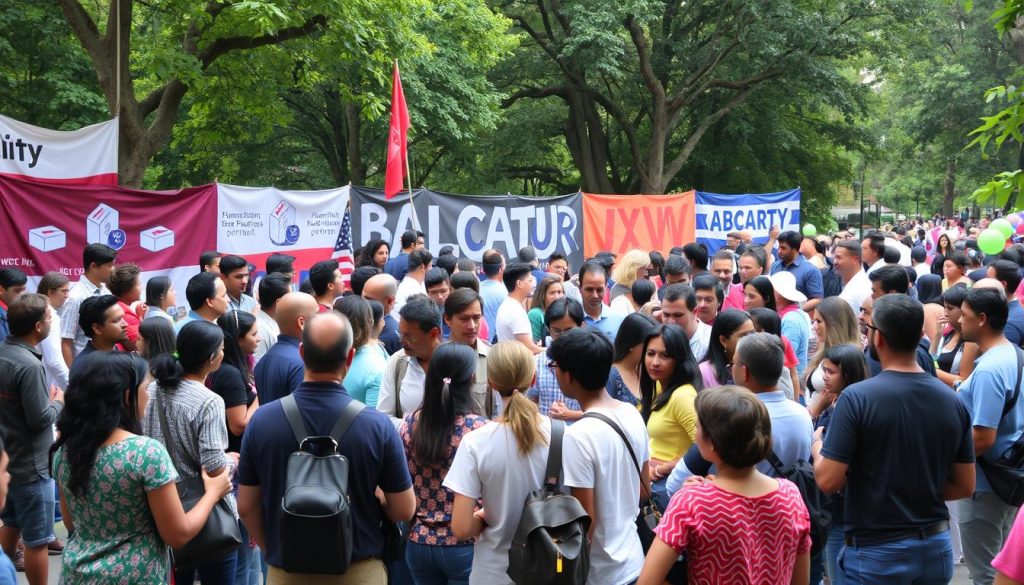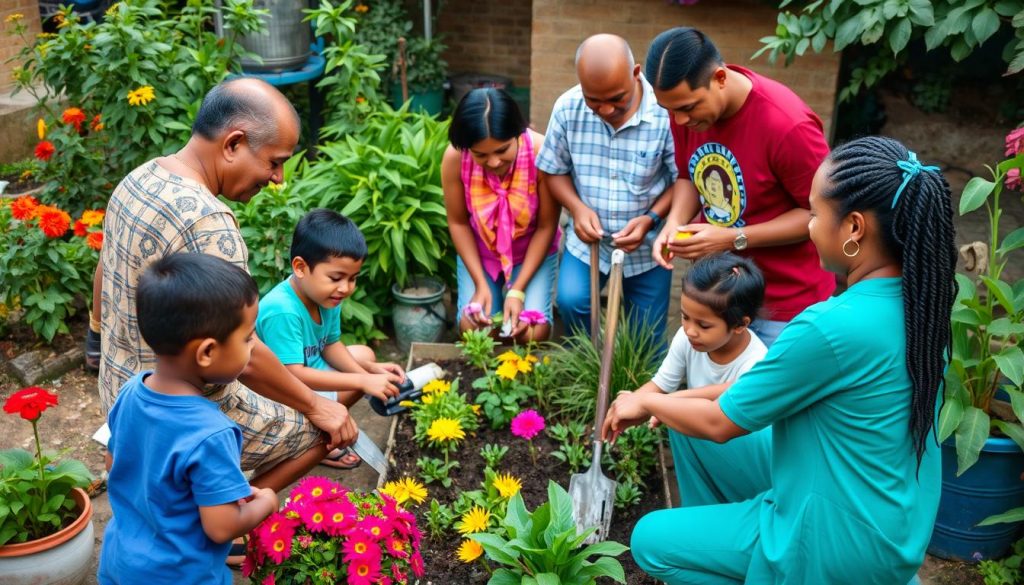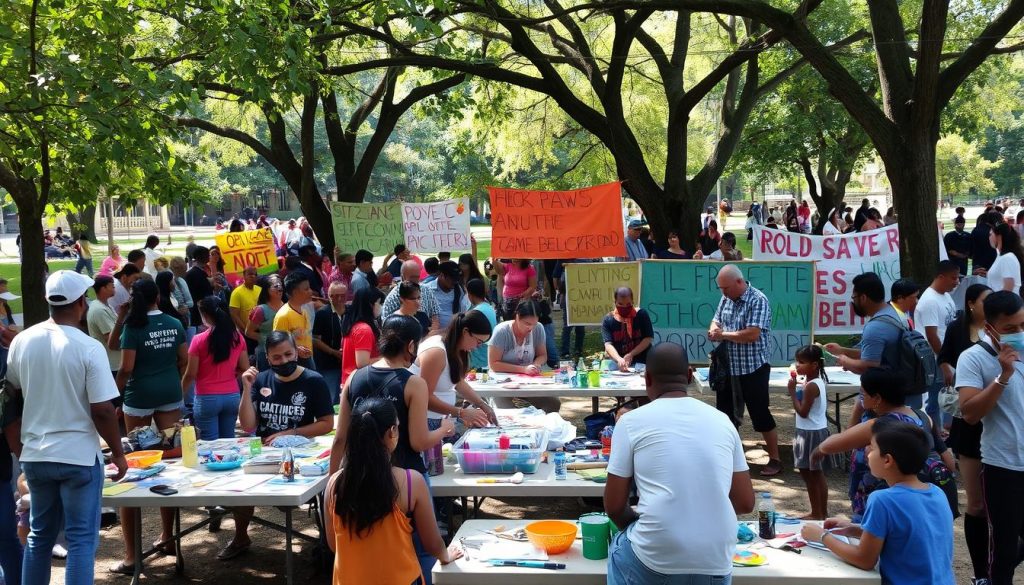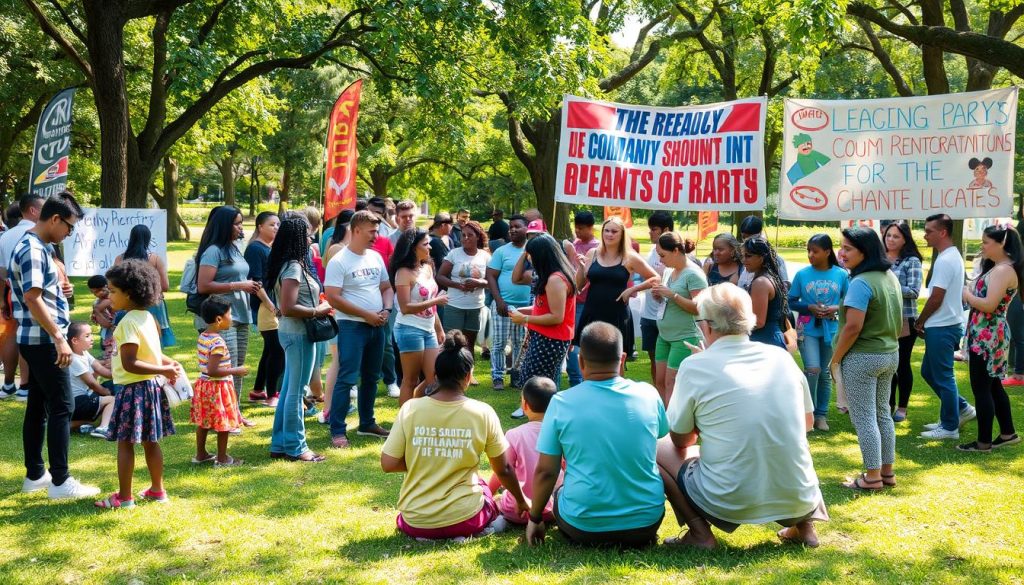Civil society includes many groups that work outside of government. These groups are key in making communities stronger. They push for collective action and fight for fairness and equality. By bringing people together, civil society builds a united community. It teaches us to work together and support each other.
The heart of sociedad civil is creating a feeling of belonging. It shows us that we’re all in this together. This helps people come together for the good of all.
Key Takeaways
- Civil society enhances social cohesion through collective action.
- It plays a vital role in advocating for equality and social justice.
- Sociedad civil fosters a sense of belonging among community members.
- Community empowerment is central to the function of civil society.
- Engagement in civil society initiatives strengthens democracy.
- Collaborative efforts lead to improved community resilience.
Understanding Civil Society and Its Importance

Civil society includes many groups that are not part of the government or the market. They are key in building communities, speaking up for the public, and bringing people together. These groups let people take part in civic life, share their views, and affect government decisions.
Civil society is vital in a democracy. It encourages people to get involved in government. These groups make sure different groups, like the less heard, have a say in decisions. They talk about civic duties and rights, making democracy stronger.
Civil society is also about building communities. It creates social networks that build trust and cooperation. This helps people work together for common goals, making communities stronger. Through volunteering, speaking out, and support, civil society helps people and makes communities more resilient.
| Aspect | Definition | Importance in Democracy | Role in Community Building |
|---|---|---|---|
| Civil Society | Diverse organisations operating independently from government and market | Facilitates political participation and representation | Fosters social networks and trust among citizens |
| Social Capital | Networks of relationships that enable cooperation | Enhances civic engagement and accountability | Empowers collaboration and addresses local issues |
| Civic Engagement | Active participation in civic life and advocacy | Strengthens democratic practices and inclusivity | Builds community resilience and unity |
Key Roles of Civil Society in Community Development

Civil society organisations (CSOs) play a big part in making communities better. They work with governments to improve life for people in their areas. CSOs fill in the gaps in welfare by offering social services.
CSOs are key in providing services like education and healthcare. These services help make communities stronger and support positive change. They also work on protecting the environment, helping local people.
Advocacy is a big role for civil society. They speak up for the community in policy talks, aiming for big changes. This helps fight for social justice and equality, making sure those left behind get support. CSOs also make sure local people have a say in decisions, making things more open and honest.
CSOs also build a culture of volunteering and civic duty. They get people involved in their communities, leading to local growth. This teamwork helps solve social problems together.
| Role | Description | Examples |
|---|---|---|
| Service Provision | Delivery of essential services to enhance community welfare. | Healthcare clinics, educational programs |
| Advocacy | Promoting policies that empower local communities. | Campaigns for social justice, environment legislation |
| Capacity Building | Strengthening community skills and knowledge. | Training workshops, resource development |
| Community Engagement | Encouraging participation in local decision-making. | Public forums, volunteer initiatives |
Sociedad Civil: Uniting Individuals for Collective Action

The idea of sociedad civil is key for people to join forces for shared goals. It has a deep history where group action is crucial. It started in the Enlightenment era, aiming to balance state power and protect individual rights and community rule. Over the years, sociedad civil has changed, fitting into different political, social, and economic scenes.
The Historical Context of Sociedad Civil
Sociedad civil’s history shows its big role in pushing for democracy and civil rights. It goes back to the Enlightenment when thinkers questioned absolute power. This led to a movement for more power for individuals, making way for democracy.
As times changed, sociedad civil grew to include various groups working together for the betterment of society.
Case Studies of Successful Sociedad Civil Initiatives
Examples of sociedad civil in action show its strong effect on communities. In the UK, the Community Organising movement shows how local action can bring people together and give them a sense of power. Environmental groups like Friends of the Earth are also making a big difference.
They raise awareness and get people to act together for big environmental changes.
How Civil Society Strengthens Democracy
Civil society is key to strong democracies. It helps make democracy better by pushing for openness, being answerable, and including everyone. Through civil engagement, groups in civil society get people involved in making decisions and using their rights. This makes democratic institutions more legitimate and ensures they listen to what people need.
Also, civil society groups are crucial in watching over what governments do and pushing for changes in policies. They create spaces for public talks, making sure many different views are heard in democracy. This kind of active participation makes democracies healthier. People feel they can make leaders answer to them, which strengthens democratic values.
CSOs also teach people about their rights and duties. This boosts civic knowledge, which is key for active democracy. When people know their part in society, they can take part more effectively. This creates a cycle of involvement that makes democracy stronger from the start.














